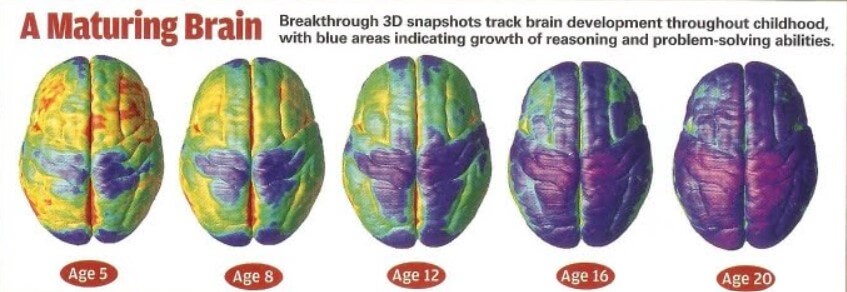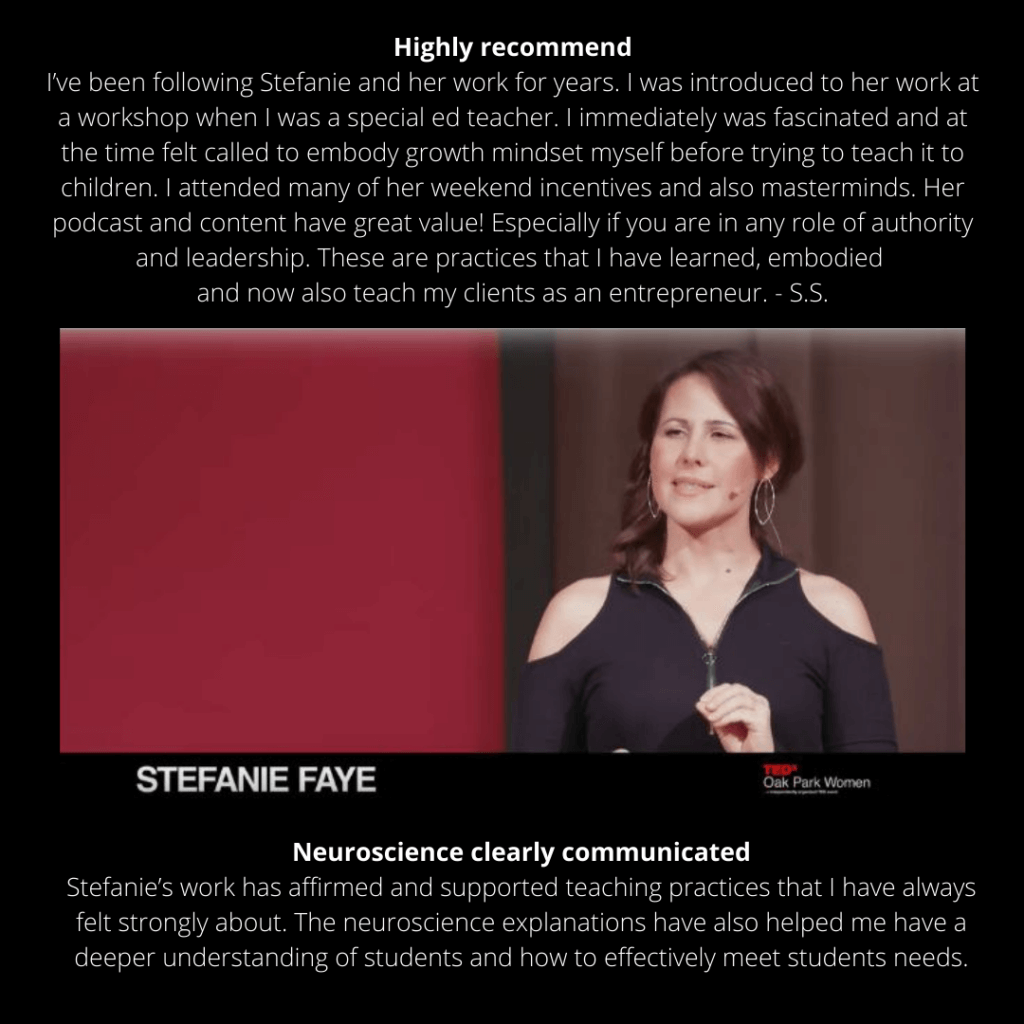
Brains mature in the presence of mature brains.
Maturity is one of the most important, and complex, topics of our current time. Maturity is directly related to mental health, and mental health is at the core of all the challenges we face. Without taking care of this aspect of us, we repeat history and find ourselves in situations that are less likely to turn out in new ways. Much of this has to do with how our brains develop over time. Without the proper developmental conditions, features that are important for maturity don't develop. This is where we see behavior from people that can damage the wellbeing of their own life as well as the lives of those around them.
Maturity and its ties to mental health is a physical, neurological, spiritual and societal concept. It doesn't happen automatically in humans. Becoming older doesn't guarantee that someone will become mature in a multidimensional way.

Because it has such deep roots, it is complex.
When things are complex, humans tend to not include them in the conversation. We are energy-conserving creatures, so the human brain-body system searches for the first thing it can see in its current vision as the 'source' of the problem.
Once it has something concrete in its sights, and has made the quick, emotional decision that it has identified the problem, it will seek to remove that 'thing' in some form. Whatever can be seen, visually and concretely, is often the easiest and most energy-efficient algorithm for the brain to determine as a problem because it can be physically targeted. It is also the most primitive form of responding to threat because it is based on physical predators or dangers. This is in contrast to more complex patterns of connecting dots.
This form of rapid, and emotion-based action is immature.
It's not complex. It's fast, not slow. And it's not a bad thing for actual tissue-damage threats occurring in live-time, where milliseconds count. In those situations, our automatic actions kick in to attempt to keep us alive*.
This form of immature action is also appropriate for young children. Their brains simply haven't developed their brain networks enough (especially the frontal areas) to take in more perspectives. It's part of a complex process of maturation. If they want their toy, they want it now. And if a sibling has it, that sibling is now an obstacle that needs to be 'removed' somehow - whether through aggression, emotional coercion (which can include 'sweet talk', bribery, guilt trips to get what one wants), or using a third party to intervene.
Immature action also happens with grown-ups. Immaturity is at the heart of quick fixes. It wants to 'get rid of' what is seen as the problem, even though there is no depth or root-cause thinking that has gone into it. If people see an extremely violent incident occur, for example, they look for the quick fix, the 'object' that needs to be removed. In the actual live moment of threat, this makes sense. But when it comes to policy and decision-making, as well as prevention science, this type of thinking is immature and will never solve the problem long-term because it never goes to the root.
The problem with immature actions and decisions is they are reactive and don't lay the groundwork for better problem-solving in the future. They don't promote the maturation of brains that will help actually prevent, or at least prepare for, future challenges to emerge.

My TEDx talk focused on 'prefrontal cortex models' as a way to help humanity on its path to maturity
Because of how human brains develop, the only way for maturity to emerge is in the presence of maturity.
The most effective way to get this to happen is to start in small circles, so that the ratio of mature brains can outweigh (through number or through strength and steadiness) the immature ones.
Our society today has a lack of this kind of ratio. We have an issue of what's called 'peer-reared' societies. Not enough mature brains leading and modeling in small circles. This is where family units and tight-knit learning communities and teams come in.
We go into this topic in my interview in Episode 10, where we cover the idea of adult-child ratios, what education is for, systems thinking and the importance of presence and attachment.
What I am seeing as patterns from working in mental health clinics, school counseling, and now seeing how mental health is truly becoming a crisis in our world today, I feel that this topic needs to be on the forefront of everyone's minds.
The immature decision-making will always pull our attention first. It will activate emotions that pull us away from logic, reasoning, complexity and systems thinking. These may sound cold and love-less, but in fact the opposite is true. Engaging in long-form types of thinking that expand our minds into seeing how systems interconnect and how to foresee future, as it connects to our past... these are the types of thinking that will help us create a better society for all.
Maturity and mental health are fostered through family and strong communities... families and small social circles that focus on creating social-emotional, loving and safe experiences we need as humans. Those sacred, safe relational playgrounds we call family act as harbors and incubators for maturation, from which we get to affect the world and ourselves in healthy ways that contribute to a better system for all of us.
The more we understand and prioritize the science and mechanics of how to help families do this, and how to help society PRIORITIZE this, the more likely we will be able to create some of the changes we hope for.
This is urgent and important. I have so much more to say on this, but felt the need to write something down. More to come soon - Episode 10 next week.
*which brings up more complexity, because the better we get at preparing and training for those situations the better our automations are for helping us - but that's for another time).
I highly recommend looking at the Neufeld Institute for more on maturity and unlocking the potential of children (and our inner child). One of his proteges, Deborah MacNamara, also wrote a fantastic book Rest, Play, Grow: Making sense of preschoolers (and anyone who acts like one).
Here's an excerpt:
"The developmental road map is about leading a child to maturity, to responsible citizenship, and to considering the world around them from multiple perspectives. It is a road map for growing a child into a separate, independent being who assumes responsibility for directing their own life and for the choices they make. [...] It is a road map to a child's potential as a social being who shares thoughts and feelings in a responsible way; develops impulse control, patience and consideration; and considers the impact of who they are on others..."
I cover more on what this all means in the next podcast.
Thank you for taking the time to read this. I don't take my role lightly when it comes to sharing content, and I feel it is an honor for someone to take the time to click on my site, and actually read an article... so if you are reading this, my deepest heartfelt thanks to you for sharing this space with me. My content comes from working with clients in live-time now, plus the patterns I've seen over decades - that I align with research. I don't post as regularly as some people, so I appreciate those of you who continue to support my work even though you don't hear from me as often!
With Love from Me to You
xoxo Stefanie

In episode 10, we talk about optimizing learning, attention spans, and the importance of play and presence from loving caregivers.


